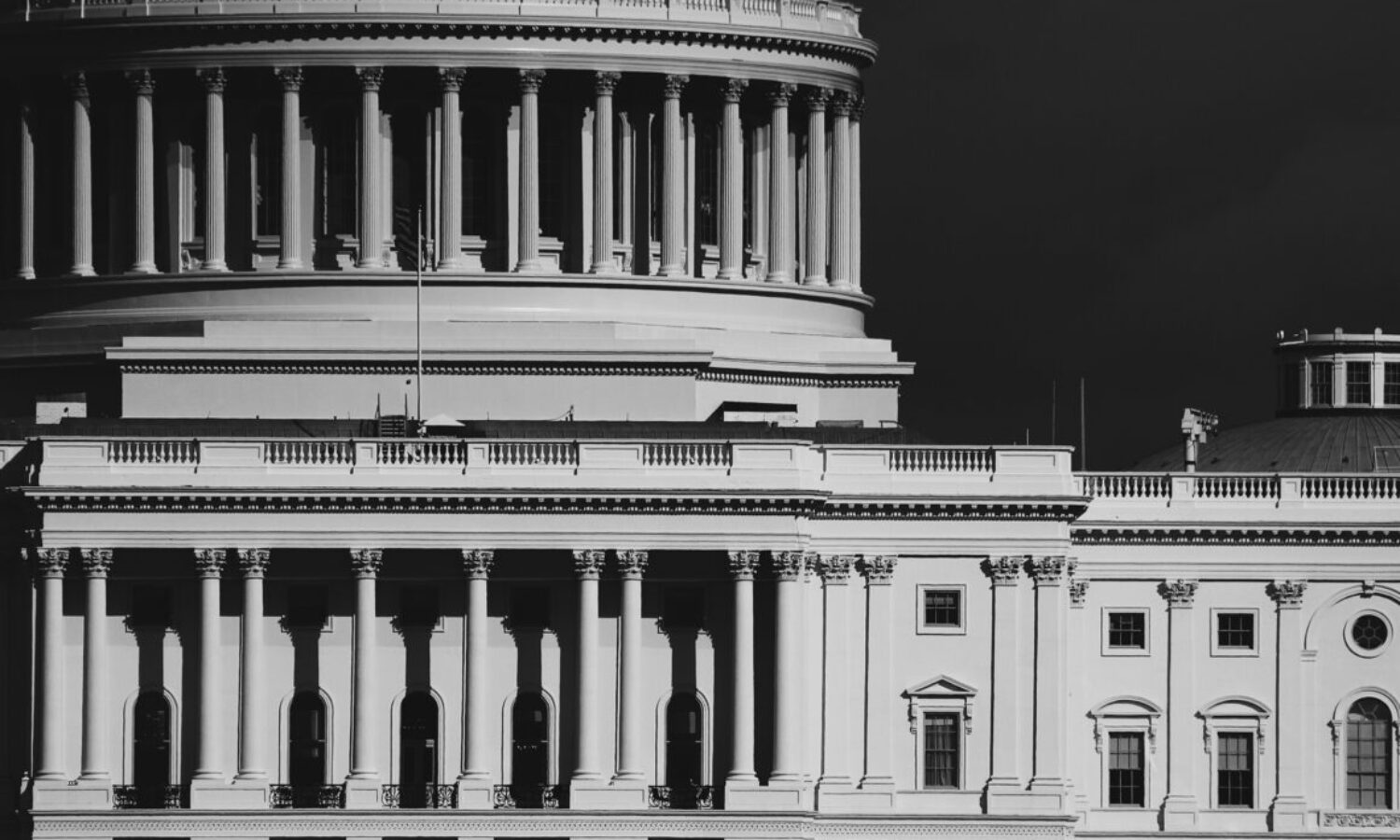i2Coalition Oct. 2021 Legislative Brief
Your brief update on important Internet policy issues
OUTLOOK
Negotiations between House and Senate Democrat leaders and the White House have continued in earnest this month toward reaching a final agreement and Congressional passage of the Biden economic agenda (the bipartisan infrastructure framework (BIF) legislation and a scaled-back Democratic social services and climate change bill advanced through the budget reconciliation process (the “Build Back Better” plan)).
A period of intense discussions among centrist and progressive Democrats and the White House regarding the social services and climate change proposals in the budget reconciliation legislation opened up after Congress approved a short-term extension of the nation’s debt limit through early December. Through this action Congress temporarily removed the threat that the U.S. would default on its debt for the first time in history, which could have led to catastrophic economic consequences. Congress also averted a federal government shutdown by passing a short term extension of government funding that lasts until December 3. Senators Joe Manchin (D-WV) and Kyrsten Sinema (D-AZ) and Rep. Pramila Jayapal (D-WA) have been the pivotal leaders working with the White House to resolve differences among centrists and progressives on the Democratic social services and climate change bill. Congressional Democrats and President Biden hope to reach agreement so that the bills are passed by both the House and the Senate by the end of October.
TECH POLICY PRIORITIES
Section 230/Social Media. Facebook has been under searing bipartisan Congressional scrutiny following a series of bombshell revelations in leaked company documents and appearances by a whistleblower (former product manager employee Frances Haugen) on 60 Minutes and before the Senate Commerce Consumer Protection Subcommittee. Haugen has asserted that when it comes to protecting consumers online, especially kids and teens, Facebook prioritizes its profit over public safety. Additional Facebook whistleblowers reportedly are emerging. Haugen is also testifying before policymakers in the U.K. and EU. In response, Facebook has said that the company is willing to subject itself to greater oversight to ensure its algorithms are performing as intended and are not harming users. Facebook has also responded that Haugen is not an expert in the topics she is discussing and that other company documents and information can counter her representations. Prominent tech policy leaders in the U.S. House and U.S. Senate have pledged in this Congress to advance new legislation to better protect kids and teens online and to hold Facebook and other large social media platforms accountable. The role of algorithms in the platforms’ direction of content to users has emerged as a focal point of the debate. Additional bills have been introduced that would remove Section 230 immunity when use of such algorithms results in disseminating harmful content, and more hearings are planned. While Democrats and Republicans still are not well-aligned on other major content moderation issues in the broader Section 230 reform debate (e.g., Democrats focus on disinformation/ misinformation and Republicans focus on political bias/censorship by platforms) the topic of kids and teen protection online draws strong bipartisan agreement.
Federal Privacy. The Senate Commerce Committee has launched a series of hearings on consumer data privacy in general and on data security. Democrat members of the committee support funding the creation of a dedicated privacy bureau within FTC and giving the agency more resources to strengthen its enforcement capabilities. They also support initiation by the FTC of a privacy rulemaking under the agency’s existing statutory authority. The U.S. and EU are continuing negotiations about a replacement for the Privacy Shield for transatlantic data flows and hope to reach a solution by the end of the year.
Copyright/IP. The Copyright Office has initiated a study to examine the issue of requiring online platforms to pay news publishers for aggregated content. The Senate Judiciary IP Subcommittee Committee has been engaged on patent matters, including a hearing on patent ownership.
Antitrust/Competition. Senators Amy Klobuchar (D-MN) and Charles Grassley (R-IA) introduced a bill (S. 2992, the “American Innovation and Choice Online Act”) that would prohibit dominant online platforms from engaging in discriminatory behavior. The bill is similar but not identical to legislation sponsored in the House by House Judiciary Antitrust Subcommittee Chair Cicilline (D-RI).
Broadband. Funding levels for broadband connectivity in the Senate-passed bipartisan infrastructure framework (BIF) and in the pending Democrat social and economic proposals in the reconciliation package reflect the high priority placed by lawmakers on closing the digital divide in unserved and underserved areas. While Congress works out the final numbers for broadband support in those pieces of legislation, the FCC has continued implementing broadband programs and its work on improving the broadband mapping system under its existing authority. On October 26 President Biden announced his intention to name Jessica Rosenworcel as FCC Chair and Commissioner, Gigi Sohn as FCC Commissioner, and Alan Davidson to head NTIA.
For more in-depth updates on Internet policy that impact your organization, please contact us about joining the i2Coalition.


